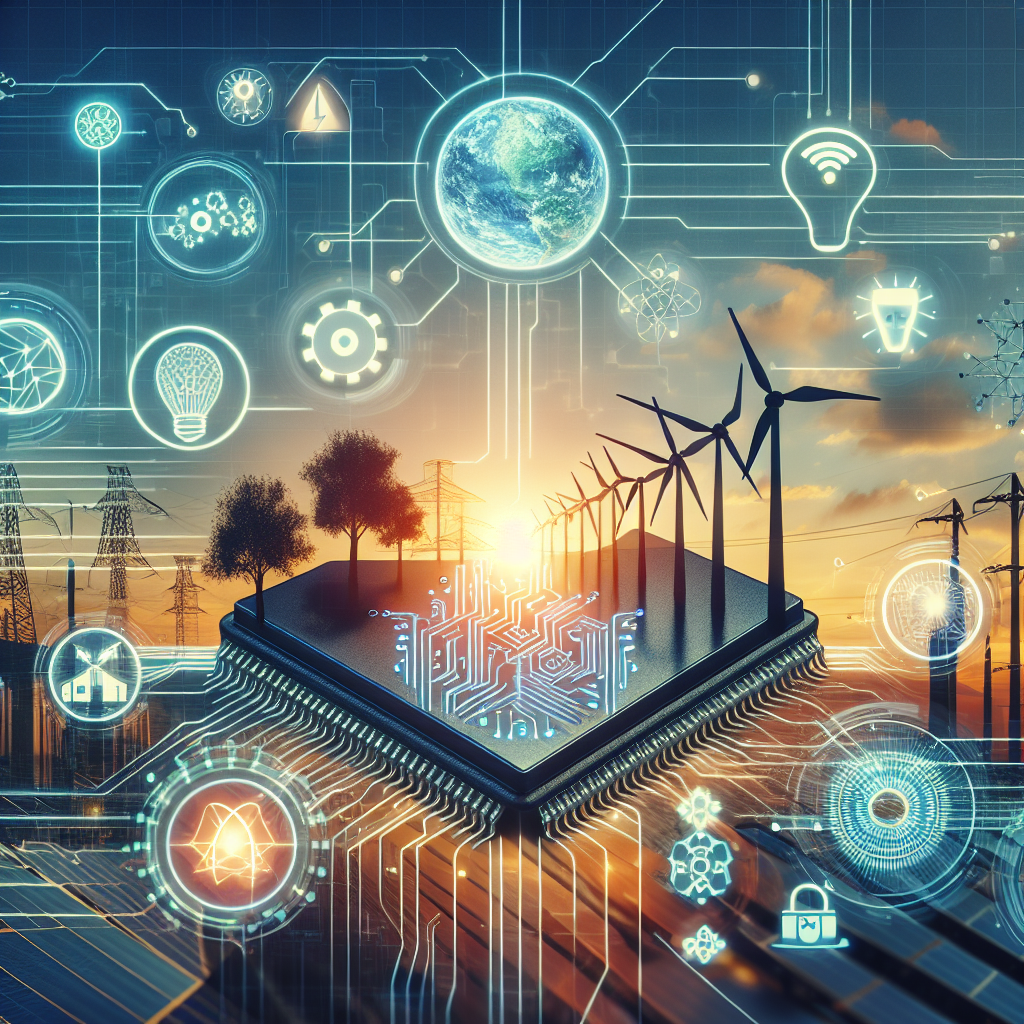In recent years, artificial intelligence (AI) has been increasingly integrated into various industries to improve efficiency, productivity, and overall performance. One industry that has seen significant advancements in AI integration is the energy sector. AI technologies are being utilized to enhance efficiency, reduce costs, and optimize operations in the generation, transmission, and distribution of energy.
One of the key areas where AI is making a significant impact is in predictive maintenance. Predictive maintenance uses AI algorithms to analyze data from sensors and other sources to predict when equipment is likely to fail. By identifying potential issues before they occur, operators can schedule maintenance proactively, reducing downtime and extending the lifespan of equipment. This not only helps to improve efficiency but also saves costs associated with unplanned maintenance and repairs.
Another area where AI is being used in the energy sector is in grid management. With the increasing integration of renewable energy sources such as solar and wind power into the grid, operators are facing new challenges in managing the variability and unpredictability of these sources. AI technologies can help to optimize the operation of the grid by predicting energy demand, adjusting generation output, and managing energy storage systems to ensure a reliable and stable supply of electricity.
AI is also being used to optimize energy consumption in buildings and industrial facilities. Building management systems can use AI algorithms to analyze data from sensors and control systems to optimize heating, cooling, lighting, and other energy-consuming systems. By adjusting these systems in real-time based on occupancy, weather conditions, and other factors, AI can help to reduce energy waste and improve overall efficiency.
In addition to these applications, AI is also being used in energy trading and market forecasting. AI algorithms can analyze market data, weather patterns, and other factors to predict energy prices and optimize trading strategies. This can help energy companies to maximize profits and reduce risks in a volatile market environment.
Overall, the integration of AI technologies in the energy sector is helping to improve efficiency, reduce costs, and optimize operations across the entire value chain. As AI continues to evolve and become more sophisticated, we can expect to see even greater advancements in energy management and sustainability.
FAQs:
Q: What are some of the challenges of integrating AI in the energy sector?
A: One of the main challenges of integrating AI in the energy sector is the complexity and variability of energy systems. Energy systems are highly interconnected and dynamic, making it challenging to develop AI algorithms that can accurately predict and optimize operations. Additionally, privacy and security concerns around data sharing and cybersecurity are also important considerations when implementing AI in the energy sector.
Q: How can AI help to reduce energy waste in buildings?
A: AI can help to reduce energy waste in buildings by analyzing data from sensors and control systems to optimize heating, cooling, lighting, and other energy-consuming systems. By adjusting these systems in real-time based on occupancy, weather conditions, and other factors, AI can help to minimize energy waste and improve overall efficiency.
Q: How can AI help to optimize energy trading and market forecasting?
A: AI algorithms can analyze market data, weather patterns, and other factors to predict energy prices and optimize trading strategies. By leveraging AI technologies, energy companies can maximize profits and reduce risks in a volatile market environment.
Q: What are some of the benefits of integrating AI in the energy sector?
A: Some of the benefits of integrating AI in the energy sector include improved efficiency, reduced costs, optimized operations, and enhanced sustainability. AI technologies can help energy companies to predict equipment failures, optimize grid management, reduce energy waste in buildings, and maximize profits in energy trading.
Q: What are some of the future trends in AI integration in the energy sector?
A: Some of the future trends in AI integration in the energy sector include the development of more sophisticated AI algorithms, increased use of data analytics and machine learning, and the adoption of AI-powered technologies such as robotic process automation and digital twins. As AI continues to evolve, we can expect to see even greater advancements in energy management and sustainability.

